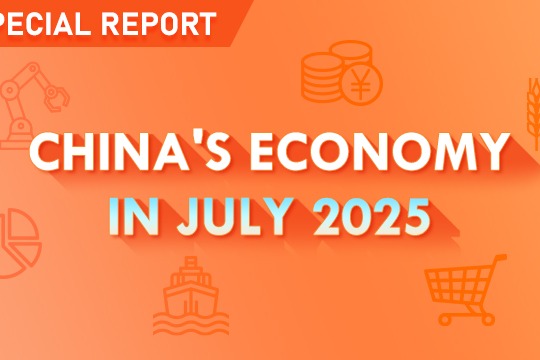SMEs under spotlight in global e-tail


Development of digital tools in APAC helps sellers reach more consumers
Rapid development of digital trade in the Asia-Pacific region is giving rise to a slew of micro-multinational enterprises, or mMNE, and bolstering them to become the main drivers for cross-border e-commerce across the globe, a recent study said.
The cohort of companies which typically provide diversified locally made products and light customization services for global buyers has contributed to over 85 percent of the region's cross-border e-commerce activities, said global consultancy Deloitte.
In a report on technology-empowered digital trade in the APAC, the consultancy identified main characteristics of an mMNE as being more adept at leveraging digital platforms, typically with fewer than 100 employees while having globalized operations with an average of 3.56 overseas outlets.
"The boom in digital trade would not be possible without the active exploration of small and medium-sized enterprises on e-commerce platforms by virtue of their flexibility," said Taylor Lam, vice-chairman and technology, media and telecommunications industry leader at Deloitte China.
To be specific, SMEs are more motivated to provide products and services in vertical market segments in view of their market positioning, so that digital trade can continuously align with market demand and maintain positive growth momentum, Lam said.
Meanwhile, digital trade manages to mitigate some of the disadvantages of SMEs in terms of cost and risk resistance, providing assistance including one-stop service solutions, logistics and scenario-based finance.
Li Dawei, general manager of Guangzhou YanXun Trading Co Ltd, is a practitioner and beneficiary of flexible manufacturing. His residential lighting business has seen sales explode by 50 percent on several overseas platforms since the COVID-19 pandemic began, thanks to customized production in quick cycles.
"We launch up 100 to 200 new products per year, and devote 10 percent of annual revenue to research and development," Li said. "Bolstered by our strategy to adapt innovation to customer needs, gross profit can reach up to 80 percent, which is encouraging as orders for standard products are all in the firm grip of more established manufacturers."
These multinational startup firms are also adept at using social media for cross-border promotion. Trade dealer A Zhu (his online avatar) employs 20 people managing tons of social media accounts with over 100 million followers in total. In this way, they advertise everything from clothing and pets to furniture, and sell cost-effective Chinese merchandise to the United States, Europe and Japan.
"We are more inclined to establishing our own website rather than opening shops on the likes of Amazon," he said. "Apart from cost control reasons, we also value the direct traffic diverted to our site."
In the Deloitte study, around 70 percent of surveyed enterprises plan to set up independent websites, which are already in place in 33.4 percent of surveyed enterprises. Independent websites have become a key channel for enterprises to break the business ceiling or expand into new markets, as they attract the attention of exporters.
Per the report, the continuous improvement of digital infrastructure will effectively resolve the two major constraints affecting cross-border trade in logistics and payments. The penetration rate of digital payments is 55 percent and 53 percent for sales digitalization.
Frankie Fan, head of WorldFirst in China, a leading international payments business with over 40 percent market share in China, Japan and South Korea, believes SMEs play a crucial role in the economic recovery of the region.
"With the support of cross-border online sales and payment infrastructure and the Regional Comprehensive Economic Partnership agreement starting to take effect next year, SMEs in the region will increasingly gain a foothold in cross-border trade," Fan said.
The report foresees the region will enter a golden age of digital trade over the next three years, especially buoyed by the strengthened regional cooperation led by the RCEP.
"Zero tariffs, unified markets …people in the foreign trade business are heartened by the changes heralded by the RCEP because it is really expected to address the problems in cross-border e-commerce," Li said.




































